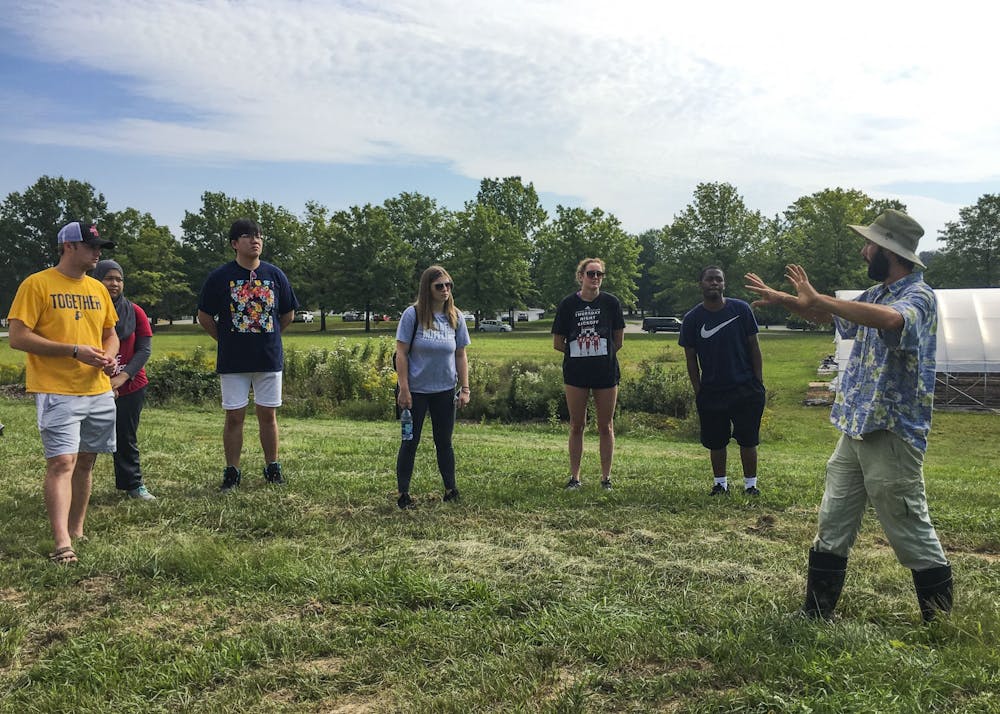The IU Campus Farm at Hinkle-Garton Farmstead prepares its stand from 4 to 7 p.m. every Wednesday in October, stocking locally grown fruits, vegetables and flowers.
The stand is located at 451 N. Pete Ellis Dr., among rows of crops and greenhouses where crops range from beets to bell peppers. Customers said they believe the produce is some of the best in Bloomington.
“It’s definitely better than anything you can find in the grocery store,” Susan Kinzer, a farm stand customer, said. “We get vegetables every week that are in-season and we learn how to cook new things.”
The farm received funding from IU in 2017, and hired Erin Carman-Sweeney as the first manager in the spring of 2018. He planted the first crops the farm ever grew.
Carman-Sweeney said the stand helps support the farm’s mission of promoting locally-grown food, building sustainable food systems and fighting against food insecurity.
A sustainable food system is a long-term method of producing food doing minimal damage to the farm and surrounding ecosystems. This allows for crops to be grown consistently with few consequences, Carman-Sweeney said.
The campus farm takes this a step further by practicing regenerative agriculture, Carman-Sweeney said, which can expand farmland by making previously infertile soil able to grow crops.
Carman-Sweeney said they are still working to improve the soil at the campus farm because before it was established, the land was completely stripped of its fertile topsoil.
“We’re bringing in a lot more organic matter and trying to build a healthy soil to produce the best crops possible,” Carman-Sweeney said.
Volunteers are welcome on the farm during farm stand hours and Saturdays from 10 a.m. to noon. The farm also works with certain IU classes by finding ways that various curriculums can relate to its message, such as an art student using the farm as the background for a painting, Carman-Sweeney said.
While the methods used at the farm are not always viable options for large scale food production, farm director and IU professor John Farmer said he believes it is important to observe what is working for local farms and look to apply them on a national scale.
“Finding ways to constantly improve our food system and make it more efficient and resilient is absolutely imperative,” Farmer said.
Food insecurity is a significant issue across the world. According to the United States Department of Agriculture, 10.5% of families were food insecure at some point in 2020. The farm helps to fight against this issue through donating to the emergency food relief system in Bloomington, Farmer said.
While buying produce does help support the farm, Farmer said it can also create a sense of community in Bloomington. He also said by volunteering, purchasing food or visiting the farm, people can engage with others and have conversations about food production.
“To me, food is just a great byproduct of all this,” Farmer said. “It’s really about engagement, learning and discourse.”




